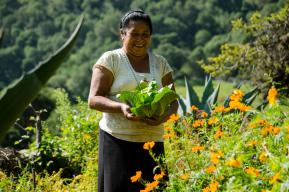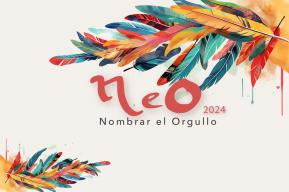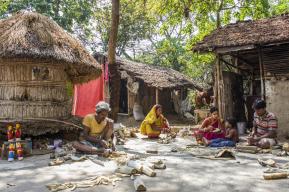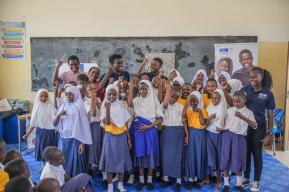Project
Combating youth unemployment through the cultural industries

Overview
Funds Allocated: 65 000,00 USD
Period: 2012 to 2013
Beneficiary countries: Mozambique
Applicant: Mozambique National Commission for UNESCO
Presentation
Promote employment opportunities in the cultural industries for young people by training a cohort of entrepreneurs from Southern, Central and Northern regions of Mozambique and encouraging them to share knowledge gained from capacity-building workshops with local organizations. The Mozambique National Commission was established in 1990. It is a governmental institution responsible for the country’s cooperation with UNESCO. It promotes UNESCO initiatives in Mozambique, including the implementation of the 2005 Convention. In 1997, the NatCom launched a national network regrouping more than 100 organizations and institutions such as schools, associations and cultural centers. Reinforcement of Cultural Industries through capacity-building is one of its primary missions.
Local context
Young people of Mozambique are particularly affected by the country’s 21% unemployment rate caused in part by the global economic crisis. Aware of the potential for sustainable development presented by the cultural industries, the government hopes to tackle unemployment by encouraging initiatives from individual cultural entrepreneurs. Some projects are already underway, but with little know-how in management, marketing and legal issues, those initiatives are not thriving. Thus, it is necessary to offer training to young would-be entrepreneurs to ensure endeavors will come to fruition.
Results
- Promoted exchange and network building
- Trained some 80 young people in cultural management, marketing and fundraising to enhance product commercialization and promote self-employment in Mozambique.
Main objectives
The Mozambique National Commission is building the capacity of youth active in the creative sector to be the next generation of cultural industries stakeholders. The goal is to bring together a community of engaged stakeholders to share experiences as well as best practices with those young people. Thus, stakeholders become mentors tasked with imparting skills and knowledge relative to the cultural industries. Their expertise is used to reinforce the capacities of existing organizations involved in the creative sector.
Main activities
- The first phase of this project entailed selecting a pool of 90 participants active in cultural institutions from the Southern, Central and Northern regions of Mozambique. The Mozambique National Commission solicited the participation of established stakeholders of the country’s creative sector by asking them to spearhead capacity-building workshops introducing the 2005 Convention and additional international and national legal instruments relevant to cultural expressions. Acting as mentors, they shared experiences as well as best practices and offered specific advice to participants.
- In the second phase of this project, trainees from the previous phase bring back this knowledge to their respective locales, working with two to three institutions at the grassroots level. Initiatives deemed sustainable by project organizers will then receive logistical support.
- The third phase of this project is the organization of a national workshop where participants will share success stories with their peers, government, representatives of civil society organizations and NGOs. This will also include an exhibition of the best work produced as a result of this project.
- The final phase of this project entails communicating on results via printed material and a dedicated website.










